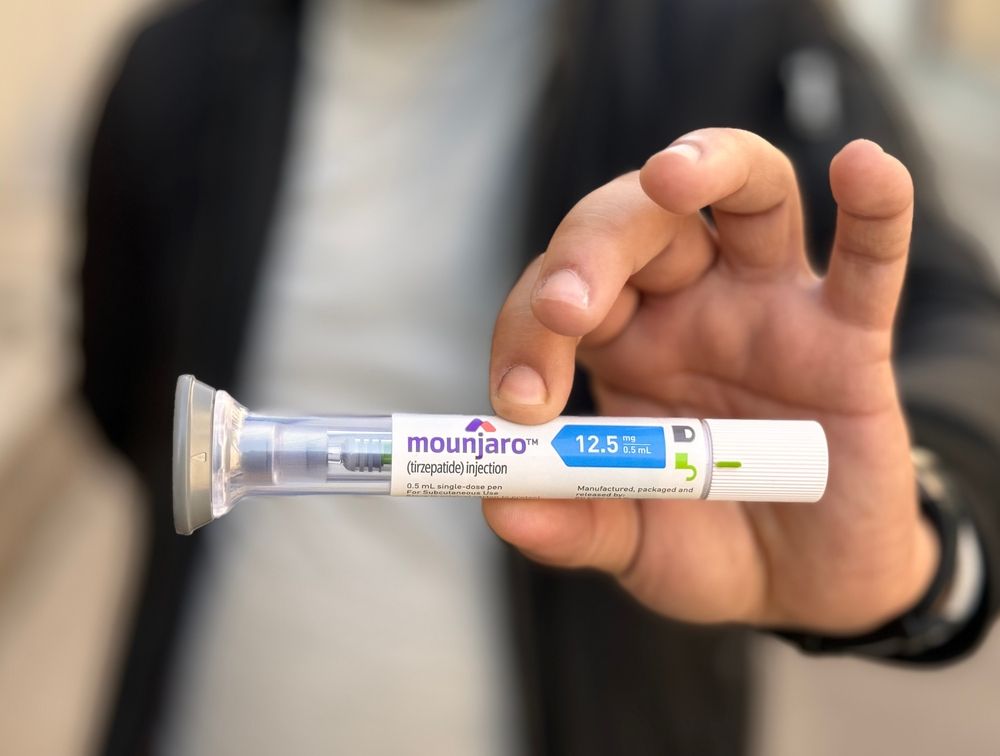How Quickly Can I Get Bariatric Surgery? What to Expect
How quickly can I get bariatric surgery? Learn about the timeline from consultation to surgery and explore options to fast-track your progress.

Bariendo Team
Team @ Bariendo
Wondering how quickly you can get bariatric surgery? Unfortunately, the path from initial consultation to surgery day can take many months, with pre-surgery workups alone often taking six months or more.
If the idea of waiting months for bariatric surgery is discouraging, there are ways to speed up the process. Below, we’ll walk you through the complete bariatric surgery timeline and explore faster ways to jump start your weight loss journey.
How Quickly Can I Get Bariatric Surgery?
From consultation to surgery day, the process of getting bariatric surgery typically takes 6 to 9 months or more. The exact timing will vary based on how long it takes you to get insurance approval and complete pre-surgery requirements.
Meeting the Requirements for Bariatric Surgery
Before moving forward with bariatric surgery, you must meet certain health criteria, starting with a Body Mass Index (BMI) of 40 or higher. You may also qualify with a BMI of 35 to 39.9 if you have a weight-related health condition, such as type 2 diabetes, high-blood pressure, fatty liver, high cholesterol, or sleep apnea.
You will also need to show that you’ve made an earnest effort to lose weight through traditional methods, including diet and exercise, but haven’t seen long-term success. These steps help to ensure that bariatric surgery is a necessary next step in your weight loss journey
Some insurance providers may also require patients to complete a medically supervised weight loss program, which typically takes about six months. This step helps to ensure that the patient is ready to meet the lifestyle changes required for post-surgery weight loss success.
The Complete Timeline from Consultation to Bariatric Surgery
The journey from your initial consultation to surgery day involves several steps, all designed to ensure that you’re fully prepared for the procedure. The entire process can take 6 to 9 months or more. Knowing what happens at each stage can help you understand what to expect along the way.
Step 1: Attend an Informational Session
The first step on the path to bariatric surgery is attending an informational session with your healthcare provider. This session is designed to help you understand the different types of weight loss surgery available, the potential risks involved, and whether it’s the right solution for you.
It’s an opportunity to ask all of your questions, understand the lifestyle changes that will be necessary for long-term success, and meet the healthcare team who will guide you through the process.
Step 2: Initial Consultation
Attending an initial consultation with your bariatric surgeon is the next step. During this one-on-one meeting, the surgeon will review your medical history, discuss your weight loss goals, and determine if you’re a suitable candidate for surgery.
Your surgeon will also help you decide which procedure will be best for your needs. You’ll get a complete breakdown of the pre-surgery requirements, recovery process, and what to expect after the surgery.
Step 3: Insurance Approval and Authorization
The next major hurdle is obtaining insurance approval. This can be the lengthiest part of the process, often taking several months. Insurance companies have strict criteria regarding bariatric surgery, including the above mentioned BMI requirements and proof of previous failed weight loss attempts.
Once you qualify for the surgery, you may be required to complete a medically supervised weight loss program for about six months, before they will authorize the surgery.
During this time, you will need to submit documentation showing that you’ve followed the program and met other pre-surgery workup requirements. Once your paperwork is submitted, the approval process itself can take anywhere from a few weeks to several months, depending on your insurance provider.
Step 4: Pre-Surgery Preparation
As the surgery date approaches, you’ll need to complete a series of pre-surgery preparations to ensure that you’re physically ready for the procedure.
This may include undergoing medical tests such as blood work, an EKG, or a sleep study to assess your overall health and identify any conditions that may impact the surgery.
Some patients are also required to follow a special pre-surgery diet for 1-2 weeks before the surgery. This plan is designed to reduce the amount of fat around the abdomen and shrink the size of your liver to make the surgery safer.
It also helps you start adjusting to the lifestyle changes that will be necessary after the surgery. The plan typically involves following a low-calorie diet, incorporating appropriate physical activity, and receiving dietary guidance from a registered dietitian on portion sizes and foods to avoid.
Step 5: Scheduling the Surgery
Once your insurance company authorizes your surgery, you can schedule a surgery date. You’ll need to find a date that fits both your schedule and the surgeon’s availability.
Wait times can vary depending on your surgeon’s caseload, but most patients can expect to schedule surgery within a few weeks to a few months after receiving insurance authorization.
During this time you’ll receive final instructions for the day of the surgery, how to plan for your hospital stay, and how to prepare your home for post-surgery recovery.
Step 6: Surgery Day
On the day of your bariatric surgery, you’ll arrive at the hospital or surgery center and check-in for the procedure. Then, you’ll meet with your surgery team and be prepared for surgery.
The surgery will be performed under general anesthesia and typically takes around two hours to perform, depending on the type of procedure you’re having.
After the surgery, you’ll spend a few hours in recovery before being moved to a hospital room for a short stay. Your medical team will monitor you closely for potential complications for at least a few days before you can return home.
Step 7: Post Surgery Care and Recovery
During post-surgery recovery, you’ll need to follow your surgeon’s instructions carefully to avoid complications and help your body heal. You will need to adhere to a liquid or soft food diet and refrain from most exercise.
However, light physical activity, such as walking, may be recommended to help prevent blood clots and promote healing. Your surgical team will guide you toward a gradual transition into solid foods and gentle exercise as your body heals.
Regular follow-up appointments are required to monitor your progress and ensure that you’re adapting well to the lifestyle changes required after the surgery.
The overall recovery process can take a few weeks to a few months, depending on the procedure you had and your general health. It may take several weeks or more before you can return to work and your normal daily routine.
How Long Is the Waiting List for Bariatric Surgery?
There isn’t typically a formal “waiting list” for bariatric surgery, and the timeline is largely determined by how quickly you can meet your insurance company’s requirements and receive authorization.
Your surgeon’s availability and the hospital’s schedule will also influence how quickly your surgery can be scheduled. Most patients can expect it to take at least 6 to 9 months from initial consultation until surgery day.
How Long Does It Take to Get Bariatric Surgery If I Self-Pay?
You may be able to get bariatric surgery sooner if you self-pay. Avoiding the need for insurance authorization can shave several months off your wait. However, your surgeon may still have some pre-surgery requirements you will need to meet to ensure that you’re physically ready for surgery.
Beyond that, the exact timing will depend on your surgeon’s availability and the schedule of the hospital or surgery center. However, it’s important to know that bariatric surgery can cost $20,000 or more if you pay out of pocket, which may be a factor in your decision.
How Long Does Bariatric Surgery Take to Heal
The amount of time it takes to heal after bariatric surgery depends on the type of procedure you have, your overall health, and how well you follow post-surgery guidelines. The two most common types of bariatric surgery are gastric sleeve and gastric bypass.
For gastric sleeve surgery, also called vertical sleeve gastrectomy, most patients spend about two days in the hospital. The initial recovery period at home typically lasts 2 to 4 weeks, and most patients can resume light activities by the end of the first month. It can take six weeks to a few months before you’re cleared for more strenuous tasks and exercise.
It takes a bit longer to heal after gastric bypass surgery. You will typically spend 2 to 3 days in the hospital, followed by an initial healing period of about six weeks at home. You may be able to resume light activities after 4 to 6 weeks, but it may take 2 to 3 months or more for complete recovery.
Effective Alternatives with Faster Timelines
If the wait time for bariatric surgery feels too long, there are non-surgical weight loss options that offer faster timelines with equally effective results. Let’s explore these alternatives and see how they compare.
ESG Stomach Tightening
ESG Stomach Tightening, or Endoscopic Sleeve Gastroplasty (ESG), is a same-day outpatient procedure that offers a faster timeline and a non-invasive approach. The procedure is performed endoscopically in about 60 minutes and doesn’t require any incisions or permanent alterations to the body.
Instead, a flexible scope is inserted through the mouth to place sutures that reduce the size of the stomach by 60 to 75%. ESG works by limiting how much food you can eat and reducing the production of hunger hormones to help you feel fuller sooner, promoting 18 to 20% weight loss.
Anyone with a BMI over 30 can qualify for ESG, and those with a BMI of 27 to 29.9 may also qualify with an obesity related health condition. Recovery is quick - you can go home the same day and return to work, exercise, and your normal routine in as little as 1 to 3 days.
Despite being FDA-approved, ESG is still considered an elective procedure and isn’t covered by most insurance companies. This helps reduce the wait time significantly and the procedure is far more affordable than traditional bariatric surgery. ESG Stomach Tightening costs $12,995, and flexible financing options are available to qualified patients.
Gastric Balloon
Non-surgical gastric balloon is a 15-minute weight loss procedure that offers a faster timeline and quicker recovery compared to traditional bariatric surgery. This procedure involves placing a soft silicone balloon into the stomach endoscopically through the mouth.
Once the balloon is in place, it is filled with saline. It takes up space in the stomach to limit how much food you can eat and help you feel fuller sooner, resulting in 10% weight loss. The balloon is removed after 6-months and is designed to jump start rapid weight loss.
The procedure is performed on an outpatient basis and you can go home the same day. Most patients take 1 to 3 days off work before returning to their normal routine. It’s an attractive option for those with a BMI over 30, or 27 to 29.9 with obesity related health conditions.
Like ESG, gastric balloon is typically considered an elective procedure and isn’t covered by insurance. This can speed up the timeline significantly, and the overall cost is $7,495, including 12 months of follow up care. Flexible financing options are also available to qualified patients.
Finding the Fastest Path to Weight Loss and Better Health
Understanding how long it takes to get bariatric surgery can help you make an informed decision about your weight loss journey. Don’t let the long wait time for bariatric surgery become a roadblock to weight loss and better health!
Non-surgical weight loss procedures like ESG Stomach Tightening and non-surgical gastric balloon offer impressive results with shorter timelines and faster recovery, helping you take control of your weight loss - and your health - sooner.
If you’re ready to explore a weight loss solution without the long wait time of bariatric surgery, our compassionate team is here to help. Schedule a free consultation to explore your options and create a plan that sets you up for long-term success.

